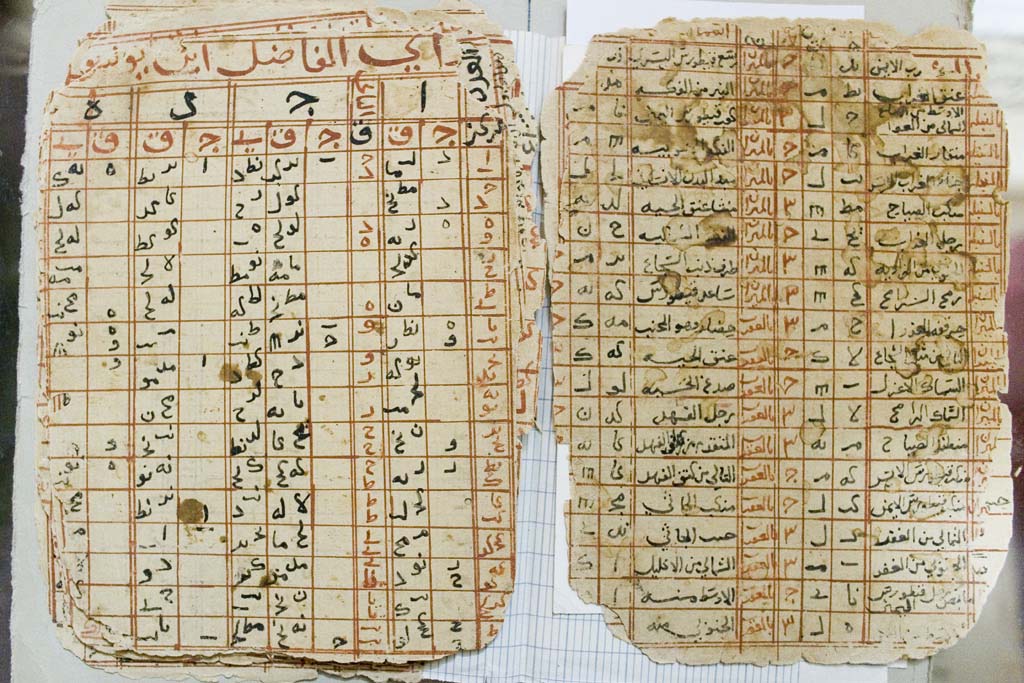Call for Papers: Muslim Intellectual Writing in Africa

Muslim Intellectual Writing in Africa

The Muslim written intellectual tradition happened in Africa as in other parts of the Muslim world. Harar, Cairo, Fes, and Timbuktu are examples of centres of Islamic learning in Africa that contributed to this Muslim intellectual writing in Africa. (In the last decade, Timbuktu has become synonymous with Africa's written intellectual tradition as a whole). Muslim intellectual writing in Africa covered Islamic law, history, language, theology, literature, medicine, politics, commerce, Sufism, exegesis, prophetic traditions, and a variety of other fields. It can tell us, for example, about history in Africa, the dialogues and polemics of Sufism and Sufis, Islamic law and rising developments, problems and challengers in pre-colonial and colonial regions in Africa. Much has been written on Islam and slavery in (especially West) Africa. However, hundreds of manuscripts from Timbuktu will give us new insights into how Muslim jurists navigated Islamic law to produce novel and innovative rulings on slavery in Islamic law. Likewise, Muslim chronicles leave us with a picture of scholars as ideological doers who wrote informed by the developments and dialectics of their day. The writings are invaluable sources to modern scholars of African Studies. To this end, we make a Call for Papers on Muslim intellectual writing in Africa, which will be delivered at the African Studies Association, United Kingdom meeting (ASAUK) in September, 2018.
CONFIRMED PANELS
SPIRITUAL, POLITICAL AND INTELLECTUAL LUMINARIES
- The life and works of al-Shaykh Muhammad Kordo al-Fulani, Mohamed Diagayete (Institut des Hautes Etudes et de Recherches Islamiques Ahmed Baba (IHERI-AB), Mali)
- 1865-1945: The last Modibo in a fading colonial order, Moussa Kamara's intellectual journey, Mbaye Lo (Duke University, United States)
- A man of the people' - Ustadh Mahmoud 'Mau', from Lamu: poet, imam, and baker, Kai Kresse (Columbia University, United States)
- Muslim female political leadership in pre-colonial Northern Mozambique: the letters by Nunu Fatima binti Zakariya of Moginucal, Liazzat Bonate (University of the West Indies, Trinidad and Tobago)
- The twentieth century Sufi response: negotiating colonialism and Islamic modernism in interwar Zanzibar, Anne Bang (University of Bergen, Norway)
CHRONICLES
- Timbuktu historical chronicles and the recycling of tradition, Paulo de Moraes Farias (University of Birmingham, United Kingdom)
- From la chronique du chercheur to the Tarikh ibn al-Mukhtar and the Tarikh al-fattish, Mauro Nobili (Illinois at Urbana-Champaign, United States)
- The opposing political objectives of two 20th century Timbuktu: the Kitab al-turjuman and the JawÄhir al-ḥisÄn fÄ« aḫbÄr al-SÅ«dÄn, Mohamed Mathee (University of Johannesburg, South Africa)
- Historiographic genres and the material circulations of texts: the case of the Kilwa chronicle, Adrien Delmas (Institut des Mondes Africains CNRS UMR 8171, France)
GOVERNANCE, SCHOLARSHIP AND KNOWLEDGE
- Registers of rhetoric: commentary and classical Islamic scholarship through the Kitab al-rimah, Amir Syed (University of Pittsburgh, United States)
- The multi-faceted nature of authority in the Sahel: building blocks for a durable West African statecraft, Paul Naylor (University of Birmingham, United Kingdom)
- Resisting the statist reduction of the self: on the effects of Shaykh Yusuf's "anti-politics", Auwais Rafudeen (University of South Africa, South Africa)
- Usman Dan Fodio's conception of good governance, Tahar Abbou (University of Adrar, Algeria)
ISLAMIC MANUSCRIPTS AS AFRICAN INTELLECTUAL HISTORY
- Towards a comprehensive bibliography of authors and works in West Africa's manuscript culture, Charles Stewart (University of Illinois, United States)
- Underappreciated print: textual production and globalized contexts in 20th century African Islam, Scott Reese (Northern Arizona University, United States)
- Mastering Arabic and Arabic Masters in West Africa Susana, Bruce Hall (University of California, United States)
- The making of a local historian in Timbuktu? Maḥmūd Ka'ti, historical notes, marginalia and the Fondo Kati, Susana Molins-Lliteras (University of Cape Town, South Africa)
If you have any queries or suggestions please contact Mohamed Mathee (smathee@uj.ac.za), Bruce Hall (ouagadoo@yahoo.com), Mauro Nobili (nobili@illinois.edu). For panel and paper submissions please follow the instructions on the website http://www.asauk.net/call-for-papers-and-panels-asauk-2018-now-open/